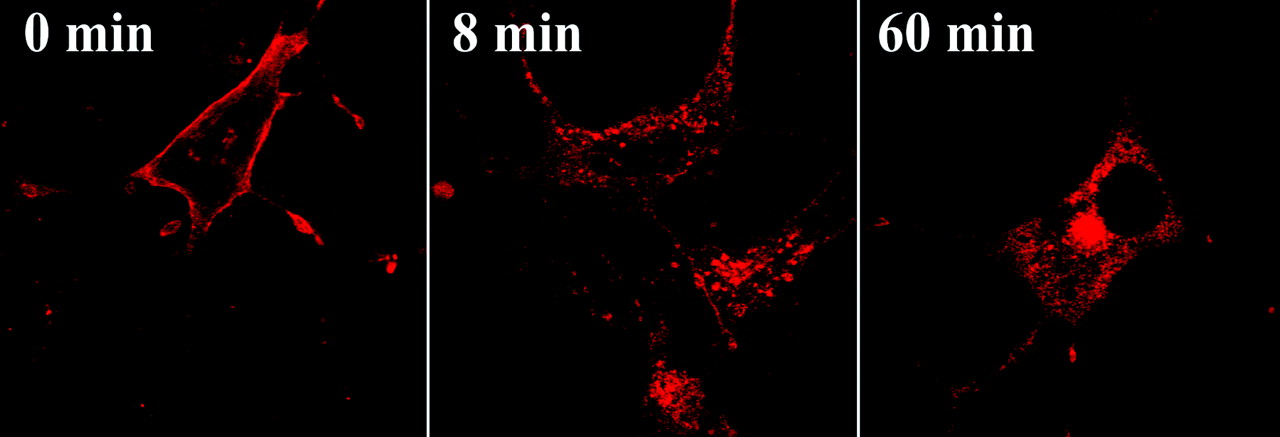The fibroblast growth factors (FGFs) induces a multitude of responses in target cells. In many cells the growth factor is a potent mitogen (Burgess and Maciag, 1989), whereas in others it inhibits proliferation or induces various kinds of differentiation (Ornitz and Marie, 2002). Of particular interest in relation to tumour growth and metastasis, including gastrointestinal cancer, is the important role of the FGFs in angiogenesis (Bikfalvi et al, 1998). Fibroblast growth factors play a crucial role in the development of urological cancers (Cronauer
et al. 2003) and effort is being made to develop drugs that interfere with the tyrosine kinase activity of FGF receptors (Manetti and Botta, 2003).
We have presented evidence that FGF1 has a dual mode of signal transduction involving both stimulation of the surface receptor and translocation of the growth factor to the nucleus. Transport of extracellular proteins into the cytosol or the nucleus has been reported repeatedly, but the mechanism is quite unclear. It is a main line of research of our group to try to find out how FGF1 and other growth factors are able to cross cellular membranes and how they transduce their signal in the nucleus.
